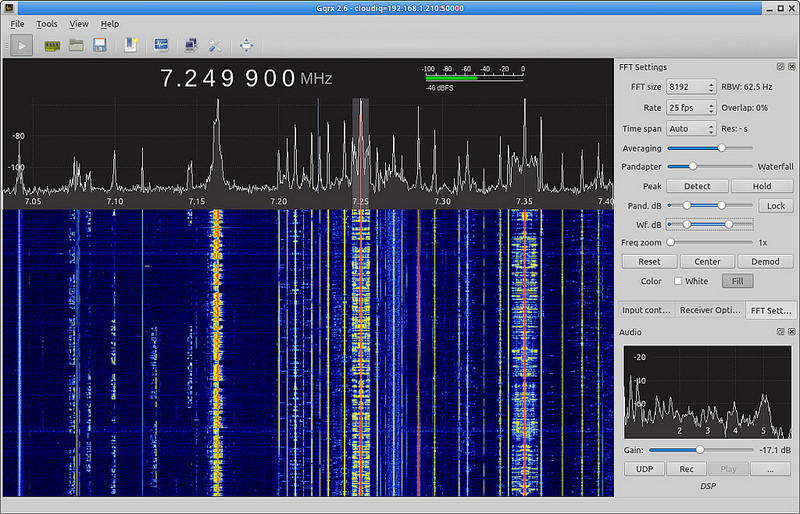Using Gqrx with USRP SDR's and DSD voice decoding on Mac OS X without losing your mind
The Problem: Homebrew formula is a rotten Brew!
Over the last few years, using the gqrx package was as simple as using homebrew. However, over late, the keepers of the brew formula hasn’t maintained the build with the most recent gr-osmosdr and Ettus Research UHD Library. So rather than depend on the brew formula, go grab the source and build your own version guaranteed to be up-to-date – and working on your USRP device!
Grab the source
So, the latest source (as of this writing 2.11.5) is available on the gqrx download section of their website.
Continue reading





